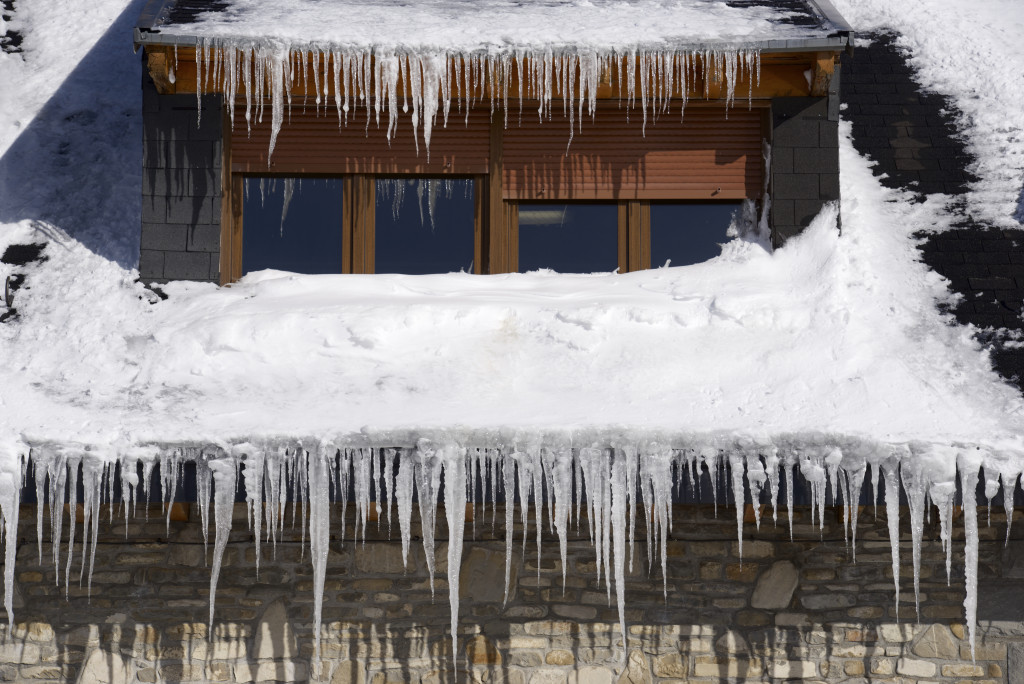As the weather gets colder and we begin to spend more time indoors, it’s essential to take a moment to think about how the winter weather can affect your home. Unfortunately, winter is a tough season in the United States. It’s estimated that 62% of Americans whose homes were damaged by the 2019 winter storm were still experiencing the consequences in 2020. It’s the same scenario this year.
From your roof to your pipes, there are several ways that the winter weather can cause problems for your home if you’re not prepared. Here are the three most common ways that the winter weather can affect your home and what you can do to prevent or mitigate any damage.
Roof
One of the most vulnerable parts of your home during winter is your roof. Heavy snowfall and ice can accumulate on your roof, putting stress on the structure and potentially causing damage. Here are three ways to ensure that your roof is safe during winter.
Get it Inspected
Roofs need to be inspected at least every three years. The main reason behind this is that any damage may not be noticeable until it’s too late and could result in water damage inside the home. Therefore, it’s essential to have your roof inspected by a reputable residential roofing service before winter to ensure that any damaged shingles or weak spots are fixed before they become a problem in the colder months. It can ensure you don’t have to spend money on an expensive roof replacement.
Clear Snow and Ice Accumulation
As snow and ice accumulate on your roof, it can cause stress on the structure and potentially lead to damage or collapse. Therefore, it’s important to regularly remove any snow accumulation, especially if you live in an area with heavy snowfall. It can be done using a roof rake or hiring professionals to remove the snow for you.
Keep Gutters Clear
Gutters are another aspect of your roof that can quickly become blocked with leaves, debris, and ice during winter. It can lead to water damage as melted snow has nowhere to go and can potentially cause damage to the roof structure. Therefore, it’s essential to regularly clean out gutters before and during the winter season to prevent any blockages or buildup.

Pipes
Another common problem during the winter months is frozen or burst pipes. Water expands as it freezes, which puts a lot of pressure on your pipes and can cause them to break. The average cost of replacing frozen pipes is around $18,000.
If you want to prevent your pipes from being frozen, it’s essential to keep your home heated even when you’re not there so that the temperature never dips below freezing. You should also insulate any exposed pipes so that they retain heat better. If you know that a cold snap is coming, it’s also a good idea to let a trickle of water run through your pipes, so they don’t freeze solid. Finally, if you end up with a frozen pipe, don’t try to thaw it out with an open flame! This could cause severe damage. Instead, use a hair dryer or towels soaked in hot water to thaw out the pipe slowly.
Furnace
Your furnace works hard to keep your home warm during winter, but did you know it can also be a fire hazard? Having your furnace serviced by a professional at least once a year is essential—additionally, here are three ways to keep your furnace functioning efficiently during winter.
Clean It
A furnace can accumulate dust and debris, limiting its efficiency and potentially causing a fire hazard. Therefore, it’s important to regularly vacuum out any dust from the furnace and its vents to ensure it can work properly without any fire risk.
Change the Filter
Your furnace needs to have a clean filter to function correctly. This helps with air quality as well as the efficiency of your furnace. It’s recommended that you change or clean your filter every three months, but this may need to be done more frequently during winter when your furnace is constantly running.
Keep Flammable Objects Away
It’s important to keep anything flammable away from your furnace, including furniture, rugs, curtains, and clothing. These items can easily catch fire.
As the weather gets colder, it’s essential to take some time to think about how the winter weather can affect your home. From your roof to your pipes, there are several ways that the winter weather can cause problems for your home if you’re not prepared. However, by taking some simple steps, like clearing snow off your roof and keeping exposed pipes insulated, you can help prevent any damage caused by the winter weather.







